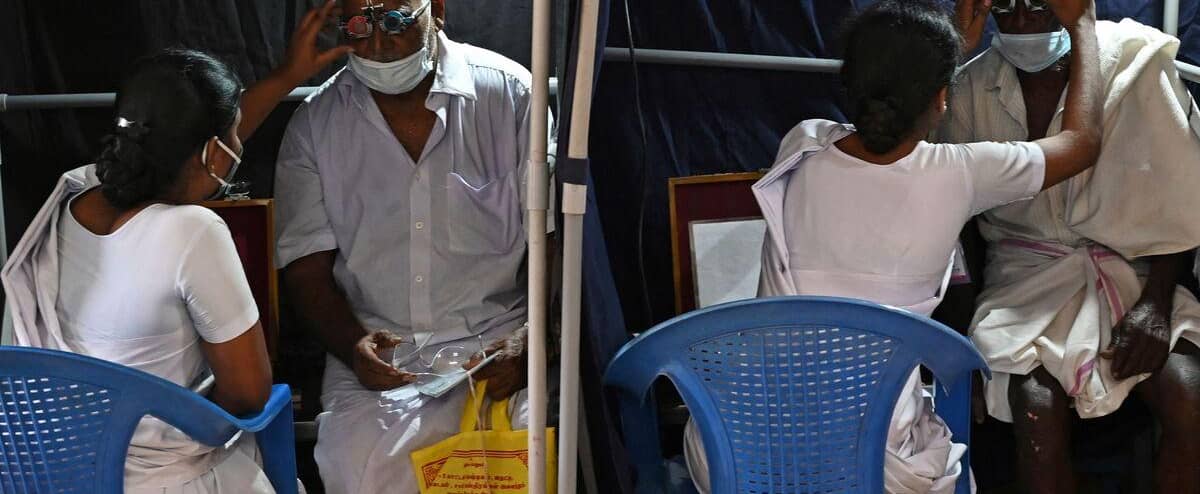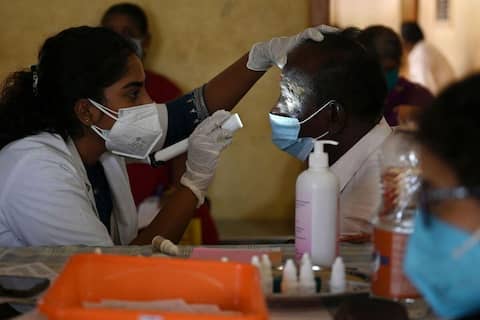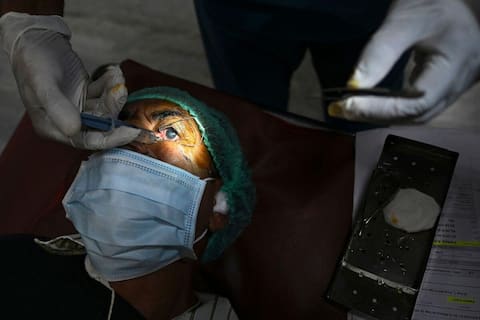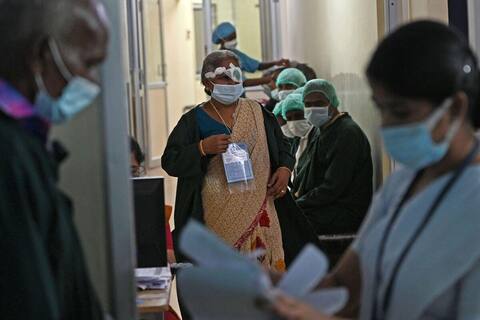Madurai, India | Dozens of Indians in green hospital gowns wait patiently before benefiting from a cataract operation that will allow them to restore their sight for free thanks to a solidarity chain of eye doctors inspired by the industrial model McDonald’s, the king of hamburgers.
• Read also: Montreal to Delhi direct flights at the end of the month
Founded in 1976, with only 11 beds in Madurai, in the state of Tamil Nadu (south), Aravind Ophthalmology Chain now performs half a million surgeries annually, most of them free of charge.
The Aravind system, developed by retired eye surgeon Govindaba Venkataswamy, is based on the principle of generating very large volumes of surgeries in order to reduce costs, such as sales of hamburgers at McDonald’s.
The doctor had discovered the economies of scale in the fast-food chain during a visit to the “Burger College” in Chicago.
“If McDonald’s can do it for burgers, why not do it for eye care?” he said then.
According to the World Health Organization, of the 38 million blind people in the world in 2020, there were 8.9 million in India, where blindness is largely attributed to cataracts (clouding of the lens) but also to infectious diseases such as trachoma.
Blindness is completely preventable, in the case of cataracts that are “corrected by minimally invasive surgery,” stresses Thulasiraj Ravila, one of the founding members of Aravind.
poor in rural areas
But the company’s pride lies in the itinerant eye consultations available to the most disadvantaged, when nearly 70% of India’s population lives in rural areas.
“Access (to care) is our main concern, so we are providing treatment to residents rather than waiting for them to come and ask us,” Ravella adds.
These free consultations have changed the lives of many Indians. Like Venkachalam Rajangam, 64, who had to give up his job at a grocery store because vision problems made his work impossible.
But one day, he learned that Aravind’s eye consultation was open near his village in Kadokari, 240 kilometers from Madurai. He went there and the doctors diagnosed him with cataracts in his left eye.
He was taken on a bus with about 100 other patients to the vast Madurai outpost, where he was taken to hospital.
The next day he underwent surgery. “I thought the operation would take an hour, but within 15 minutes it was all over. However I did not have the impression that it was dirty. The operation went well,” recalls Mr. Rajangam, smiling, after removing the bandage covering his eye.
“I didn’t have to spend a single rupee (…),” he says, gratefully clasping his hands.
ingenious development
According to Aruna Bai, Aravind eye surgeon, doctors are specially trained in fast and rigorous surgery. Depending on the hospital, the complication rate is less than two per 10,000, while it ranges from 4 to 8 per 10,000 in Britain and the United States.
“We have training labs where we are taught how to do goat eyeballs. It helps us strengthen our skills,” says Bey, who performs about 100 surgeries a day.
Rather than relying on charitable or government grants, Aravind uses income from care and counseling paid by patients who can afford it to cover treatment for the poor.
The Aravind network is also generating significant revenue from selling the implants and medicines it produces today, having grown so brilliantly. It also has several specialized care centers, as well as community clinics.
Le groupe réduit encore ses coûts en fabriquant lui-même des lentilles intraoculaires pour le traitement de la cataracte dans son unité de production Aurolab d’où sortent plus de 2,5 millions de lentiles par an, six fois moins chères queutre celles fo importées United State.
See also…

“Extreme twitteraholic. Passionate travel nerd. Hardcore zombie trailblazer. Web fanatic. Evil bacon geek.”





